Ramadan is a special time when our hearts feel closer to Allah, and our good habits shine. But once it’s over, life can feel a bit challenging—we often lose momentum as things return to normal. So, what to do after Ramadan to keep spirit alive after it ends?
Let’s explore some simple and practical tips to help you carry the goodness of Ramadan throughout the year.
Life After Ramadan: List of Post-Ramadan Activities
There are several ways how we can keep Ramadan habits active in ourselves. Here are some post-Ramadan activities that you can do to keep up the good habits of Ramadan:
1. Evaluate Your Ramadan
Evaluate your Ramadan by looking at your current state. It may be impossible to perform good deeds at the level of Ramadan after the month is over. But even if you are able to continue a fraction of them after Eid, it is a good indication that Ramadan had a positive effect on you and that Allah accepted your fasts.
Also, note down your mistakes and areas that need improvement. Make a promise to better yourself in the next Ramadan.

2. Keep Missed Fasting
If you missed any fasts in Ramadan due to illness or travelling, make up for them whenever possible. Allah says in the Quran:
فَمَن شَهِدَ مِنكُمُ ٱلشَّهْرَ فَلْيَصُمْهُ ۖ وَمَن كَانَ مَرِيضًا أَوْ عَلَىٰ سَفَرٍۢ فَعِدَّةٌۭ مِّنْ أَيَّامٍ أُخَرَ
Meaning: “So whoever sights [the crescent of] the month (Ramadan), let him fast it; and whoever is ill or on a journey – then an equal number of other days.” [Surah Al Baqarah: 185]
However, If you missed any fasts intentionally, repent to Allah immediately and make up for the broken fasts from Shawwal. Make a promise to Allah that you will never intentionally break your fasts during Ramadan again.

3. Give More Time to Your Salah
During Ramadan, we spend hours standing before Allah in Taraweeh, Tahajjud, Salatut Duha, and other voluntary prayers. Even though we might not be able to do it throughout the year, we should pray Nafl prayers whenever we can.
If you are busy and can’t spend enough time in prayers, at least do not miss the 12 Sunnah prayers daily. Prophet ﷺ said:
مَنْ ثَابَرَ عَلَى ثِنْتَىْ عَشْرَةَ رَكْعَةً مِنَ السُّنَّةِ بَنَى اللَّهُ لَهُ بَيْتًا فِي الْجَنَّةِ أَرْبَعِ رَكَعَاتٍ قَبْلَ الظُّهْرِ وَرَكْعَتَيْنِ بَعْدَهَا وَرَكْعَتَيْنِ بَعْدَ الْمَغْرِبِ وَرَكْعَتَيْنِ بَعْدَ الْعِشَاءِ وَرَكْعَتَيْنِ قَبْلَ الْفَجْرِ
Meaning: “Whoever is regular with twelve Rak’ah of Sunnah (prayer), Allah will build a house for him in Paradise: Four Rak’ah before Zuhr, two Rak’ah after it, two Rak’ah after Maghrib, two Rak’ah after Isha, and two Rak’ah before Fajr.” [Jami at Timidhi: 414]
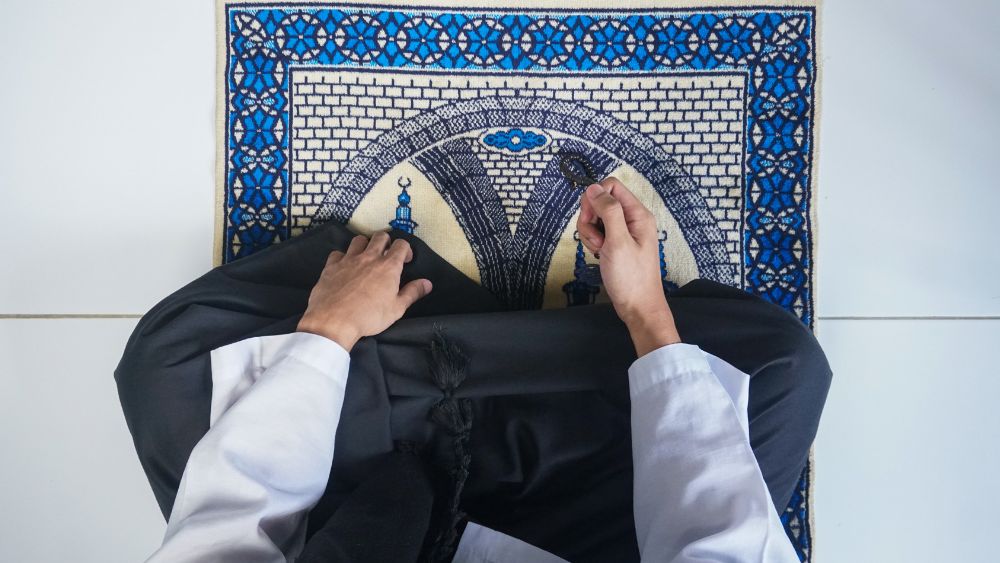
4. Voluntary Fasting
It’s recommended to keep voluntary fasting throughout the year as much as you can. It includes fasting in Shawwal, fasting in Ashura, fasting in Dhul Hijjah, especially on Arafah day, etc. You can also keep fasting on ayyam al beed (white days- 13, 14, 15) each lunar month, fasting on Monday and Thursday each week, and more.
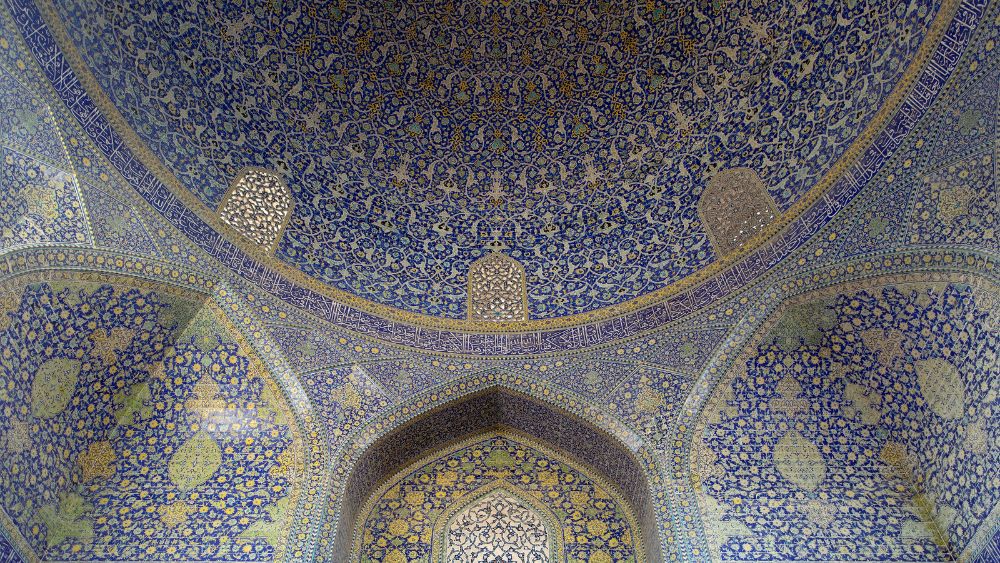
5. Pray Tahajjud
During Ramadan, most of us develop the habit of praying Tahajjud prayers before Sehri. We stand before Allah in prayer, reciting the glorious Quran, and pondering on its meaning in hopes of rewards from Allah.
We can all testify to its positive impact on us. It serves as a great tool for believers to stay on the right path throughout their entire lives. Allah says in the Quran:
إِنَّ نَاشِئَةَ ٱلَّيْلِ هِىَ أَشَدُّ وَطْـًۭٔا وَأَقْوَمُ قِيلًا
Meaning: “Truly, rising by night (for the prayer of tahajjud) is the most effective way to subdue (one’s base self) and to make speech more upright.” [Surah Al Muzzammil: 6]
We should keep the practice of praying Tahajjud to maintain the spirit of Ramadan throughout the year.
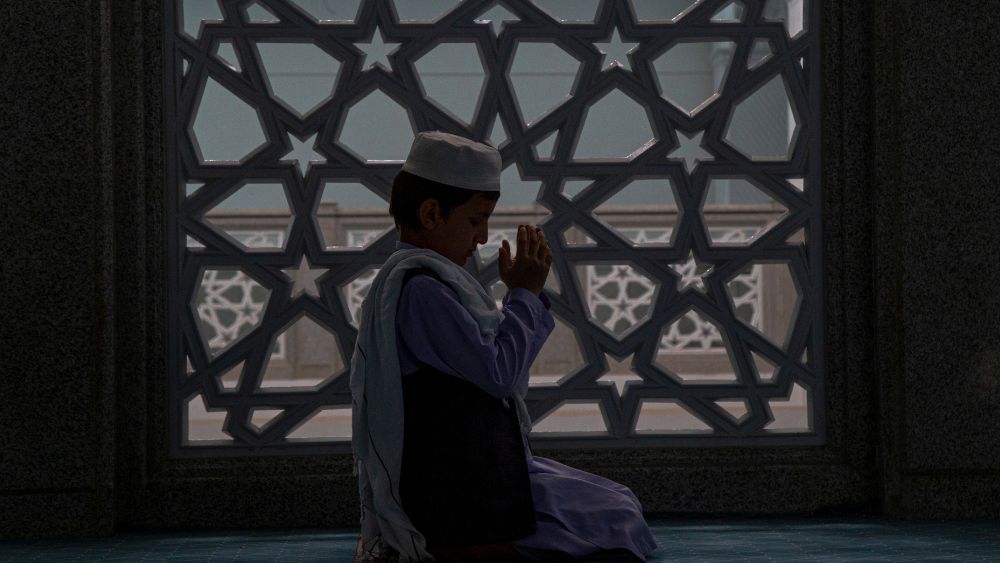
6. Set a Time for Reciting the Quran
We all know that Ramadan is the month when the glorious Quran was revealed. We recite the Word of Allah a lot during this month. Some of us even do Quran Khatam during this honourable month. That is all great. But what is the purpose of the Quran’s revelation? Is it so that we recite it only during Ramadan and let dust build-up for the rest of the year? Allah says in the Quran:
شَهْرُ رَمَضَانَ ٱلَّذِىٓ أُنزِلَ فِيهِ ٱلْقُرْءَانُ هُدًۭى لِّلنَّاسِ وَبَيِّنَـٰتٍۢ مِّنَ ٱلْهُدَىٰ وَٱلْفُرْقَانِ ١٨٥
The month of Ramadan is the one in which the Qur’ān was revealed as guidance for mankind and as clear signs that show the right way and distinguish between right and wrong. [Surah Al Baqarah: 185]
So, the purpose of the Quran is to live by its teachings every day. There is no alternative to reciting it regularly. Usually, we develop the habit of reciting the Quran consistently every day during Ramadan. This habit should be a part of our daily lives. We should set a particular time of the day and dedicate it to the recitation of the Quran. You can use our Quran app to understand it better.
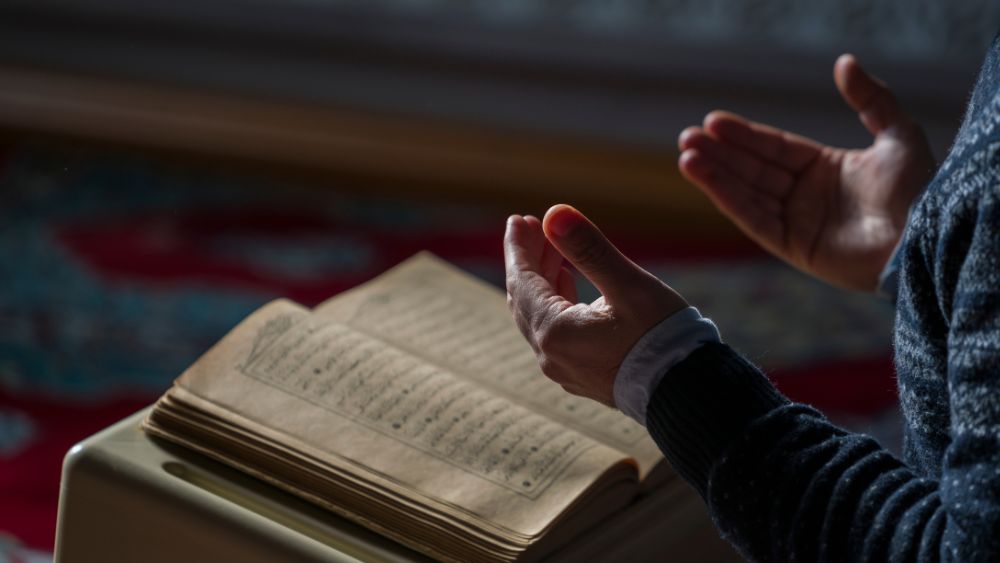
7. Spend Time in Learning Deen
During Ramadan, especially during I’tikaf, many of us develop the habit of reading Islamic books like Seerah, Aqidah, Tafsir, and more. We should continue this good habit and dedicate a particular time each day or at least once a week to learn about our deen.
This will have a lasting impact on our Islamic knowledge growth and help us become better Muslims.
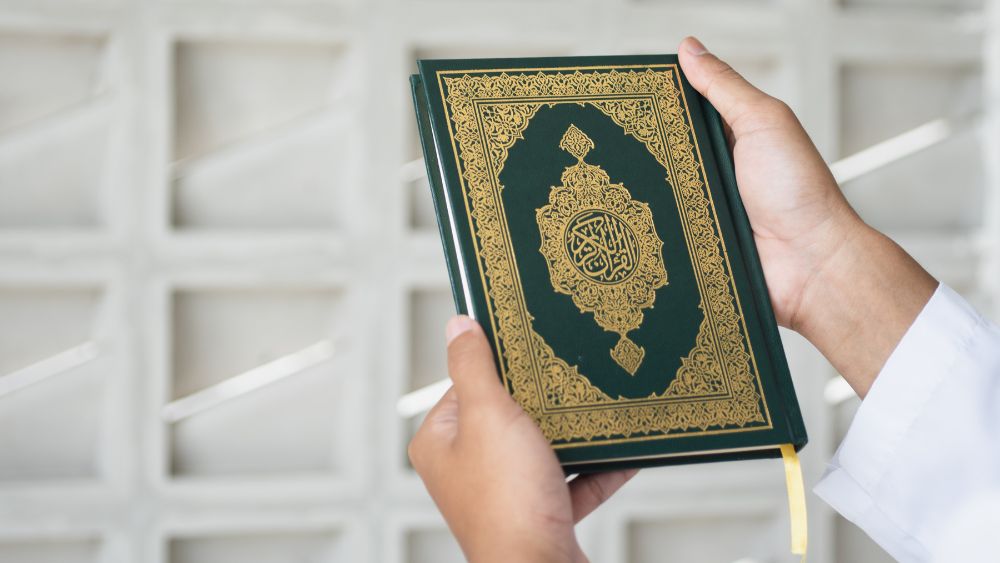
8. Daily Adhkar
Don’t miss your daily adhkars after Ramadan. They gain us protection, mercy, forgiveness, blessings, and all the goodness of this world and hereafter.
Since we tend to say them more often during Ramadan, we need to carry this habit forward after Ramadan as well. Check out our article on the best daily adhkars that you can say throughout the day. Also, check out our dua app to find hundreds more.
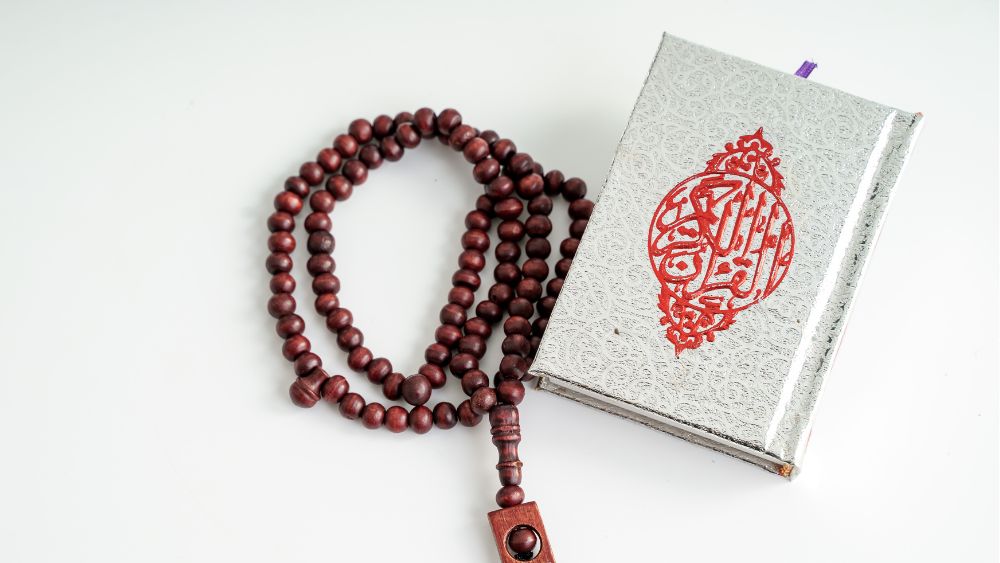
9. Continue Giving Sadaqah
The virtues of giving Sadaqah are many. It gains us Allah’s forgiveness and erases His anger towards us.
Sadaqah during Ramadan is special because rewards are multiplied many times. That’s why many people opt to pay their Zakat and Sadaqah during this blessed month. This is great. But this habit needs to continue after Ramadan as well.
The Messenger of Allah ﷺ said:
مَا مِنْ يَوْمٍ يُصْبِحُ الْعِبَادُ فِيهِ إِلاَّ مَلَكَانِ يَنْزِلاَنِ فَيَقُولُ أَحَدُهُمَا اللَّهُمَّ أَعْطِ مُنْفِقًا خَلَفًا، وَيَقُولُ الآخَرُ اللَّهُمَّ أَعْطِ مُمْسِكًا تَلَفًا
Meaning: “Every day two angels come down from Heaven and one of them says, ‘O Allah! Compensate every person who spends in Your Cause,’ and the other (angel) says, ‘O Allah! Destroy every miser.’ ” [Sahih Al Bukhari: 1442]
Thus, one of the to-do after Ramadan is to continue spending in the path of Allah regularly even if little.
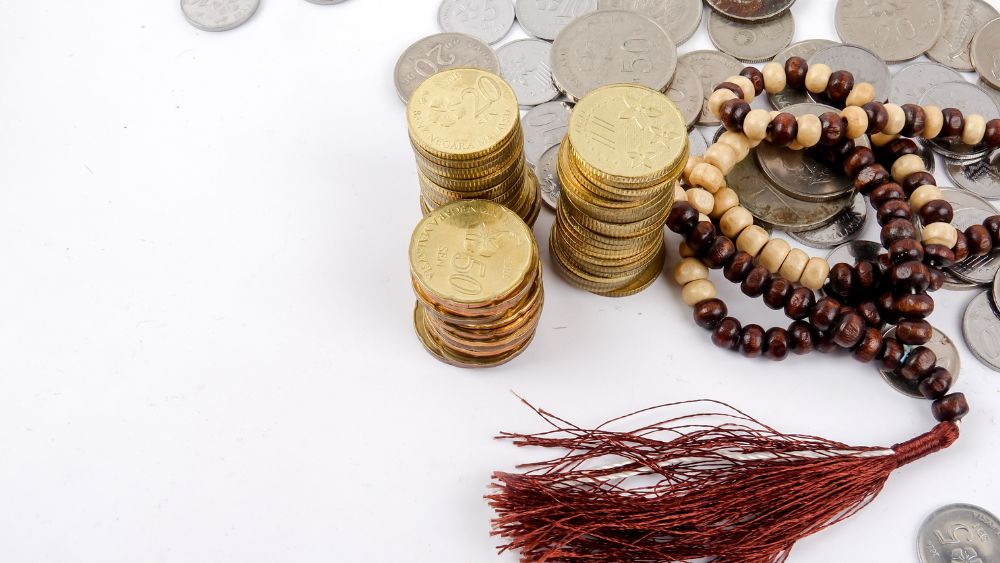
Support us to make more helpful content and materials like this planner.

10. Improve Manners
One of the most important aspects of Ramadan is to restrain oneself from ill speeches and actions. The Messenger of Allah ﷺ said:
مَنْ لَمْ يَدَعْ قَوْلَ الزُّورِ وَالْعَمَلَ بِهِ فَلَيْسَ لِلَّهِ حَاجَةٌ بِأَنْ يَدَعَ طَعَامَهُ وَشَرَابَهُ
Meaning: “Whoever does not leave false speech, and acting according to it, then Allah is not in any need of him leaving his food and his drink.” [Jami At Tirmidhi: 707]
After Ramadan, we find many returning to their old ways of slanging and misbehaving with people. If that is the case with us, then our Ramadan will not be accepted by Allah. Thus, we must improve our manners and stay away from such behaviour.
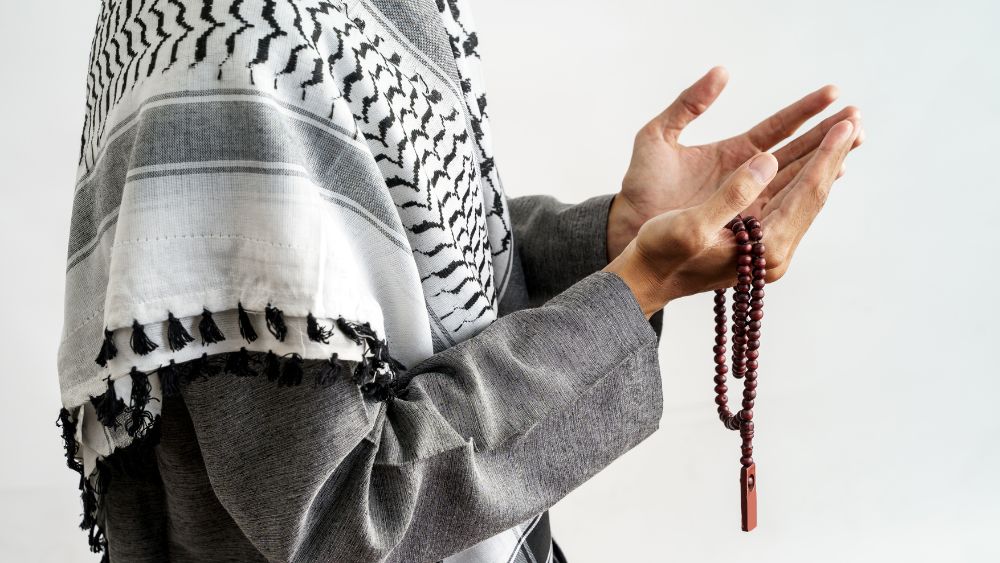
11. Stay Away from Sins
If you plan on committing sins after Ramadan, think again. K’ab bin Malik (R) said:
“Whoever fasts the month of Ramadan and says to himself that he will return to sinful disobedience when Ramadan is over, his fasting is rejected.” [Lataif al Ma’arif: 1/222]
So, one way to know whether Allah accepted our fasts or not is to see whether our course of action has changed. If we return to our same old ways before Ramadan, then there is no point in fasting. Thus, we must say goodbye to the ways of sins after Ramadan.
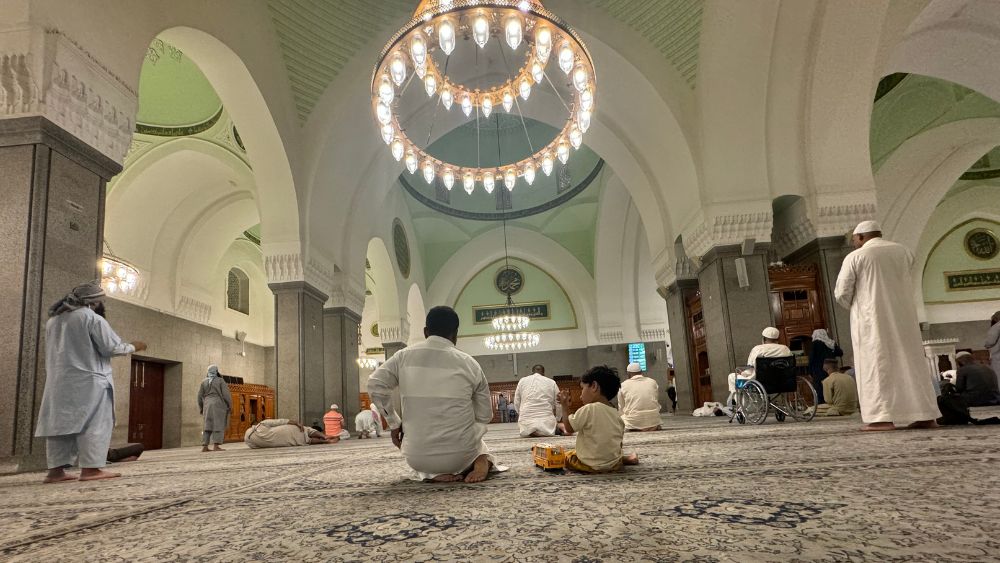
FAQs
Q. How do I know if Allah accepted my fasts during Ramadan?
Ans. If you have the patience to do good deeds after Ramadan, it is a good sign that Allah accepted your fasts.
Conclusion
Allah Subhanahu Wa Ta’ala sends Ramadan every year so that we can become righteous. It does not come as a ritual or festival, rather, It arrives as a life changer.
Thus, we must learn about what to do after Ramadan and continue doing good deeds after the blessed month has passed. We must stay on the path of righteousness and away from evil ones. May Allah give us Tawfiq.
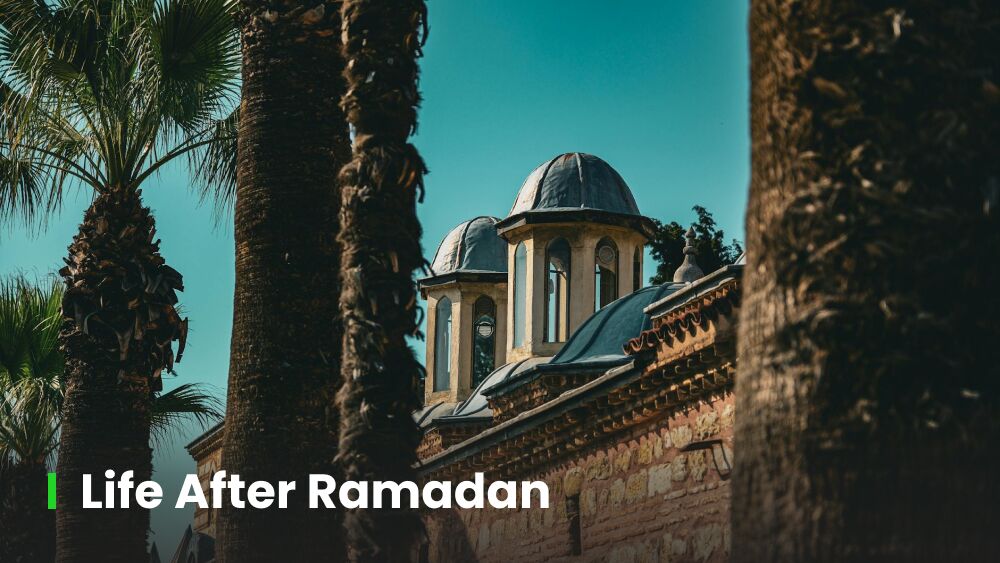
Leave a Reply